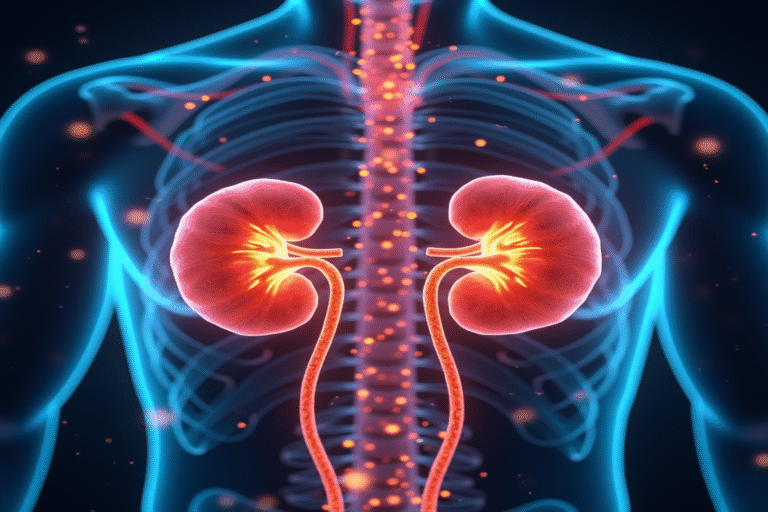Your body houses an incredible pair of natural filters that work tirelessly, day and night, without ever taking a break. About the size of your fist yet immensely powerful, your kidneys process a remarkable 50 gallons of blood every single day—equivalent to filtering your entire blood supply about 30 times!
The Microscopic Marvel Inside
Each kidney contains approximately one million nephrons—tiny filtering units that would stretch nearly 8 miles if laid end-to-end. These microscopic structures are engineering masterpieces, consisting of a glomerulus (a ball of tiny blood vessels) that filters your blood and a tubule that processes the filtered fluid.
What makes this system truly extraordinary is its precision. Your kidneys can distinguish between waste products to eliminate and essential substances your body needs to retain—all at the microscopic level, continuously, and automatically.
The Three-Step Filtration Process
- Filtration: Blood enters your kidneys through the renal arteries, where the glomeruli filter out water and small molecules, leaving larger components like blood cells in the bloodstream.
- Reabsorption: As filtered fluid travels through the tubules, your body reclaims vital substances like glucose, amino acids, and essential minerals.
- Secretion: The tubules actively remove additional waste products from surrounding blood vessels, adding them to the fluid that will become urine.
This sophisticated process culminates in the production of 1–2 liters of urine daily, representing the concentrated waste filtered from roughly 50 gallons of blood!
Mind-Blowing Kidney Facts
- Your kidneys receive 20–25% of your heart’s blood output with each heartbeat, despite comprising less than 1% of your body weight.
- Each kidney contains about 12–15 miles of blood vessels—enough to stretch from Manhattan to JFK airport!
- A single nephron is about the width of a human hair, yet performs complex chemical processes that our most advanced technology cannot fully replicate.
- Your kidneys maintain the precise balance of many different substances in your blood, including sodium, potassium, and calcium.
- These remarkable organs aren’t just filters—they also produce hormones that regulate blood pressure, stimulate red blood cell production, and activate vitamin D.
Adapting to Your Body’s Needs
Your kidneys demonstrate remarkable adaptability. When you’re dehydrated, they concentrate urine to conserve water. When you consume excess water, they increase urine production. They maintain your blood’s pH within the narrow range needed for survival and help regulate blood pressure through hormone production.
All this happens automatically, 24/7, without a moment’s rest—and typically without you noticing!
Protecting Your Natural Filtration System
Given how tirelessly your kidneys work, supporting their function is essential:
- Stay hydrated by drinking water throughout the day
- Limit sodium intake to reduce strain on kidney function
- Exercise regularly to maintain healthy blood flow
- Avoid excessive use of certain medications that can damage kidneys
- Control blood pressure and blood sugar if you have hypertension or diabetes
Next time you consider the wonders of natural engineering, look no further than your own body. Your kidneys accomplish feats of filtration, regulation, and adaptation that would require an entire chemical plant to replicate—all while fitting comfortably in your lower back and operating silently for decades. They represent one of the most elegant and efficient systems in nature, working tirelessly to keep you healthy every minute of every day.





